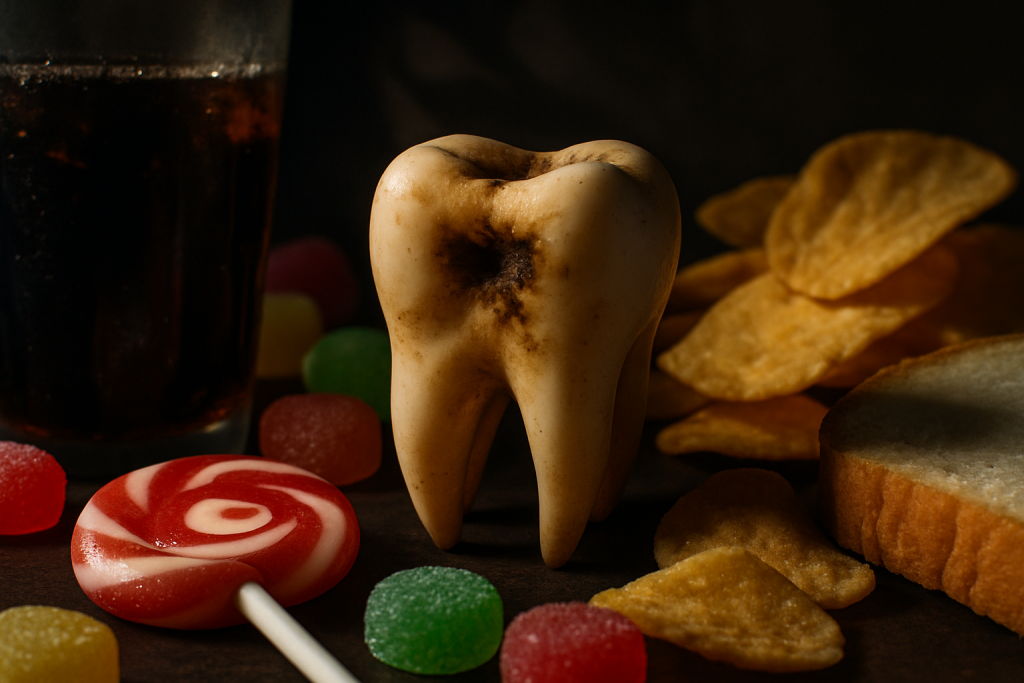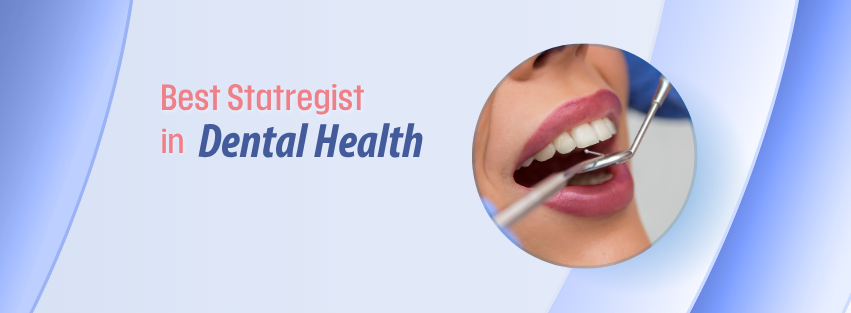
Factors contributing to rapid tooth decay:
Tooth decay is a common dental issue that affects many people. Understanding what makes teeth decay quickly can help you take preventative measures. There are several key factors that contribute to rapid tooth decay, and being aware of these can help you maintain better oral health.
Dietary choices:
Your diet plays a significant role in the health of your teeth. Sugary foods and drinks are major contributors to tooth decay. When you eat or drink something sugary, bacteria in your mouth produce acids that attack tooth enamel. Over time, this acid can lead to cavities. Here are some common dietary factors that lead to faster decay:
- Sugary Snacks: Candy, cookies, and pastries provide a quick source of sugar for bacteria.
- Soft Drinks: Carbonated beverages often contain high levels of sugar and acids.
- Sticky Foods: Foods that stick to your teeth, like dried fruits or caramel, can prolong sugar exposure.
Poor oral hygiene:
Maintaining good oral hygiene is crucial in preventing tooth decay. When plaque builds up on your teeth, it can harden into tartar, making it much harder to remove. If you don’t brush and floss regularly, plaque can lead to decay. Consider these important habits:

- Brushing: You should brush your teeth at least twice a day using fluoride toothpaste.
- Flossing: Daily flossing helps remove food particles and plaque between teeth.
- Dental Visits: Regular appointments with your dentist for cleanings are important for removing tartar.
Dry mouth:
Saliva plays a vital role in protecting your teeth. It helps wash away food particles and neutralizes acids. If you suffer from dry mouth, you may be more susceptible to decay. Some causes of dry mouth include:
- Medications: Certain medications can reduce saliva production.
- Dehydration: Not drinking enough water can lead to dry mouth.
- Health Conditions: Some medical conditions can affect saliva flow.
At-Risk age groups:
Certain age groups are more prone to quick tooth decay. Children, for instance, often consume more sugary foods and may not have developed good oral hygiene practices yet.
The elderly may also be at risk due to the effects of medications and natural wear on teeth over time. Understanding these at-risk groups can help you recognize the need for extra care in dental hygiene.
Acidic beverages and foods:
Some foods and drinks have a high acid content, which can wear down enamel quickly. Acidic items can increase your risk of tooth decay, even if they are not sugary. Popular acidic food and drink include:
- Citrus Fruits: Oranges, lemons, and other citrus fruits can erode enamel.
- Vinegar: Foods with vinegar, like pickles, may negatively affect your teeth.
- Sports Drinks: Many of these beverages are both sugary and acidic.
Genetics:
Your genetics can also play a role in your propensity for tooth decay. Some people may inherit teeth that are more prone to cavities due to thinner enamel or other genetic factors.
While you cannot change your genetics, you can focus on oral hygiene and dietary practices that reduce your risk of decay.
Brushing technique:
The way you brush your teeth can also affect how well you protect them from decay. A gentle, circular brushing motion is recommended for effective cleaning.
If you brush too hard or use a hard-bristled toothbrush, you risk damaging your enamel and gums, which can lead to decay. Always use proper techniques to ensure you are effectively removing plaque.
The role of diet in oral health:
Oral health is often seen as independent of our daily diet, but the truth is that what we eat plays a significant role in maintaining strong teeth and healthy gums. A balanced diet can prevent various dental issues, but certain foods can hasten oral decay and discomfort.
It’s vital to understand the connection between diet and oral health. Here’s how your dietary choices impact your dental well-being.
The impact of sugars:
Sugars are one of the primary culprits behind tooth decay. When sugars are consumed, they interact with the bacteria in the mouth. This interaction produces acids that erode tooth enamel. Here are some key points regarding sugars:
- Types of Sugars: Both natural sugars (like those in fruits) and added sugars (found in candies and sodas) can be harmful if consumed excessively.
- Frequency Matters: It’s not just the quantity of sugar consumed that matters; how often you consume it is equally important. Frequent snacking on sugary foods keeps your mouth in a constant acidic state.
- Duration of Exposure: The longer sugars linger in your mouth, the more damage they can do. Sticky candies and other slow-dissolving sugars are particularly harmful.
Acidic foods and beverages:
Acidic foods and drinks can also harm your teeth. Citrus fruits, pickled items, and soda can lead to enamel erosion. Here’s what to keep in mind:
- Citrus Fruits: While healthy, they are high in acidity and can wear down enamel over time. It’s wise to rinse your mouth with water after consuming them.
- Soda Consumption: Not only do soft drinks contain sugars, but they are also acidic, which further increases the risk of decay.
- Impact of Vinegar: Foods like salad dressings that contain vinegar can also contribute to enamel erosion if blown out of proportion.
Essential nutrients for dental health:
A balanced diet rich in essential nutrients promotes good oral health. Here are some key vitamins and minerals that support teeth and gums:
- Calcium: Found in dairy products, leafy greens, and fortified foods, calcium strengthens tooth structure.
- Vitamin D: This vitamin aids in calcium absorption and can be sourced from sunlight or foods like fatty fish and fortified products.
- Phosphorus: Present in meat, beans, and nuts, phosphorus works alongside calcium to build and maintain strong teeth.
- Vitamin C: Essential for gum health, vitamin C is found in fruits and vegetables, such as oranges and bell peppers.
Hydration and oral health:
Staying hydrated is often overlooked in conversations around diet and dental health. Water plays a crucial role in maintaining a healthy mouth. Here’s how:
- Saliva Production: Drinking water helps stimulate saliva flow, which naturally cleanses the mouth and removes food particles.
- pH Balance: Water helps maintain a neutral pH in the mouth, counteracting the acidity created by food and drink.
- Fluoride Benefits: Many communities provide fluoridated water, which can aid in reinforcing tooth enamel.
Snack wisely:
Snacking is a common part of daily life, but the type of snacks you choose can influence your dental health. Opting for healthy snacks can be beneficial:
- Cheese: This dairy product not only provides calcium but can also help neutralize acids in the mouth.
- Vegetables: Crunchy options like carrots and celery help remove food particles while also being nutritious.
- Nuts: Certain nuts, like almonds, are low in sugar and provide essential nutrients for teeth.
The link between oral hygiene and decay rates:
Keeping your mouth clean is essential for maintaining good health, especially your teeth. You might be surprised to learn how closely oral hygiene practices are linked to tooth decay rates.
Poor dental habits can lead to an environment where cavities thrive. Understanding this connection can help you make better choices for your oral health. Tooth decay starts when bacteria in your mouth create acids that attack the enamel, the hard outer layer of your teeth.
This process begins when leftover food particles and plaque build up on your teeth. If you fail to remove this build-up effectively, you are setting the stage for decay. Below are key factors that illustrate the link between oral hygiene and decay rates:
- Frequency of Brushing: Regular brushing helps to keep your teeth clean and free of plaque. Ideally, you should brush at least twice a day, using fluoride toothpaste. This can significantly lower your risk of developing cavities.
- Technique Matters: It’s not just about how often you brush, but also how you do it. Using the right technique can ensure that you are cleaning every surface of your teeth effectively. Make sure to brush in circular motions and cover all areas, including the back of your teeth.
- Flossing Importance: Many people overlook flossing, but it is essential for removing food particles and plaque between teeth that your toothbrush can’t reach. By taking a few minutes to floss daily, you reduce the risk of decay in these hard-to-reach areas.
- Dietary Choices: What you eat plays a significant role in your oral health. High sugar foods and drinks can produce more acid in your mouth, which can lead to quicker decay. Opting for more fruits, vegetables, and whole grains can help keep your teeth healthy.
- Regular Dental Visits: Professional cleanings and checkups give dentists the chance to remove plaque and tartar buildup. They can also catch any decay early, making treatment easier and preventing more serious issues.
Many people wonder how long it takes for decay to start after neglecting their dental care. The truth is, cavities can form quickly if bacteria are allowed to thrive. It may only take a few months of poor oral hygiene for the first signs of decay to appear. This is why establishing a consistent routine is so important.
Another factor affecting tooth decay is saliva production. Saliva helps wash away food particles and neutralize acids in your mouth. If you suffer from dry mouth, you may be more susceptible to dental issues. Drinking water regularly and speaking with your dentist about potential solutions can reduce your risk.
Furthermore, using mouthwash can complement your oral hygiene by adding an extra layer of defense. Many mouthwashes contain fluoride, which strengthens tooth enamel and helps prevent decay. Just make sure to choose one without alcohol to avoid drying out your mouth.
Conclusions:
Understanding what makes teeth decay quickly is essential for maintaining a healthy smile. Several factors contribute to rapid tooth decay, ranging from sugary diets to poor oral hygiene practices.
Your diet plays a pivotal role in oral health, as frequent consumption of carbohydrates and sugars provides the perfect environment for harmful bacteria to thrive. Making informed choices about what you eat can significantly reduce the risk of cavities.
Preventive measures against tooth decay are critical. Regular dental check-ups and cleaning can help catch problems early. Additionally, practicing good oral hygiene by brushing and flossing daily removes the plaque that leads to decay.
